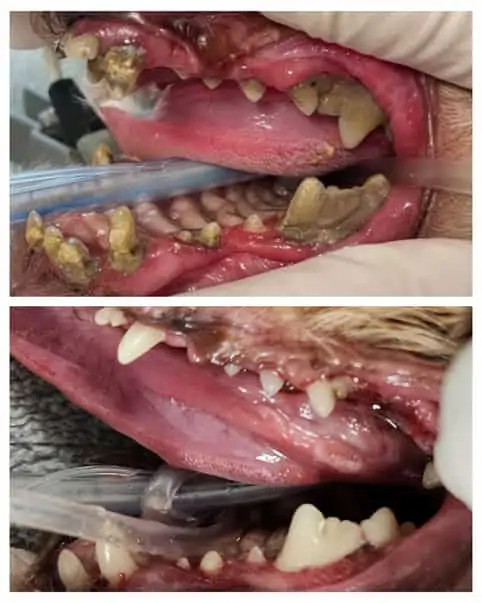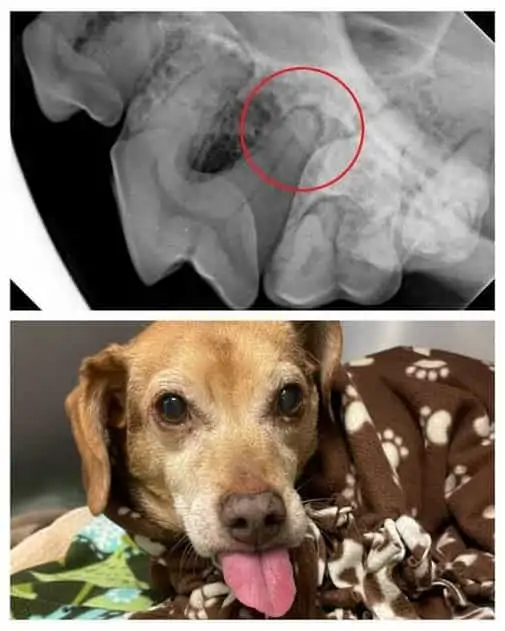Dental health is a very important part of your pet’s overall health, and untreated dental disease can lead to serious health problems, like heart valve disease.
Your pet’s teeth and gums should be checked at least once a year by your veterinarian for early signs of problems and to keep your pet’s mouth healthy. Senior pets should be checked more frequently.
Have your pet’s teeth checked sooner if you observe any of the following problems:
- Bad breath
- Broken or loose teeth
- Extra teeth or retained baby teeth
- Teeth that are discolored or covered in tartar
- Abnormal chewing, drooling, or dropping food from the mouth
- Reduced appetite or refusal to eat
- Pain in or around the mouth
- Bleeding from the mouth
- Swelling in the areas surrounding the mouth
The teeth you can see only tell half the story though! Dental radiographs are necessary to see what is going on below the gumline. Loretta is a great example of why dental x-rays are so important. She came in with a recent history of not wanting to eat, despite normally having a really good appetite. Lab work, abdominal x-rays, and ultrasound were all normal. Although her teeth looked great and she'd had a dental procedure about a year ago, when all of her other tests came back normal it was decided to recheck dental x-rays. They showed an infected root on one of Loretta's primary chewing teeth. In people this would result in a root canal, but for pets we simply remove the tooth. We removed her painful tooth and her mom was happy to report that she was back to dancing for her dinner that evening.
Periodontal disease is the most common dental problem in dogs and cats. By age three there is typically some early evidence of periodontal disease. Without taking preventative measures, this disease will worsen as your pet ages. Advanced periodontal disease can cause serious pain and other problems for your pet. The bacteria from their mouth can travel through their body and damage their kidney, liver, and heart. If you are concerned about your pet's dental health we encourage you to make an appointment with your veterinarian as soon as possible.


